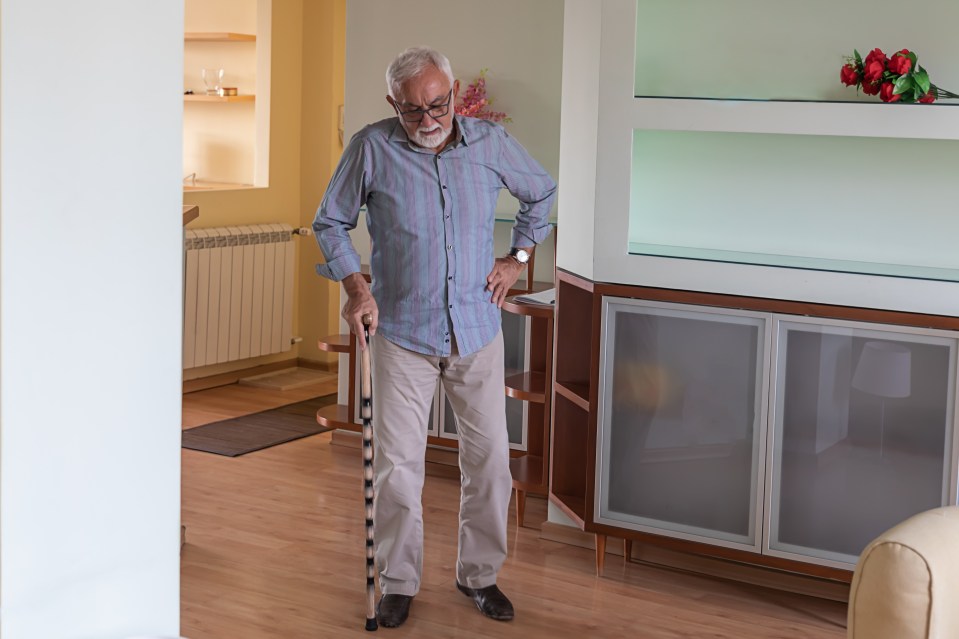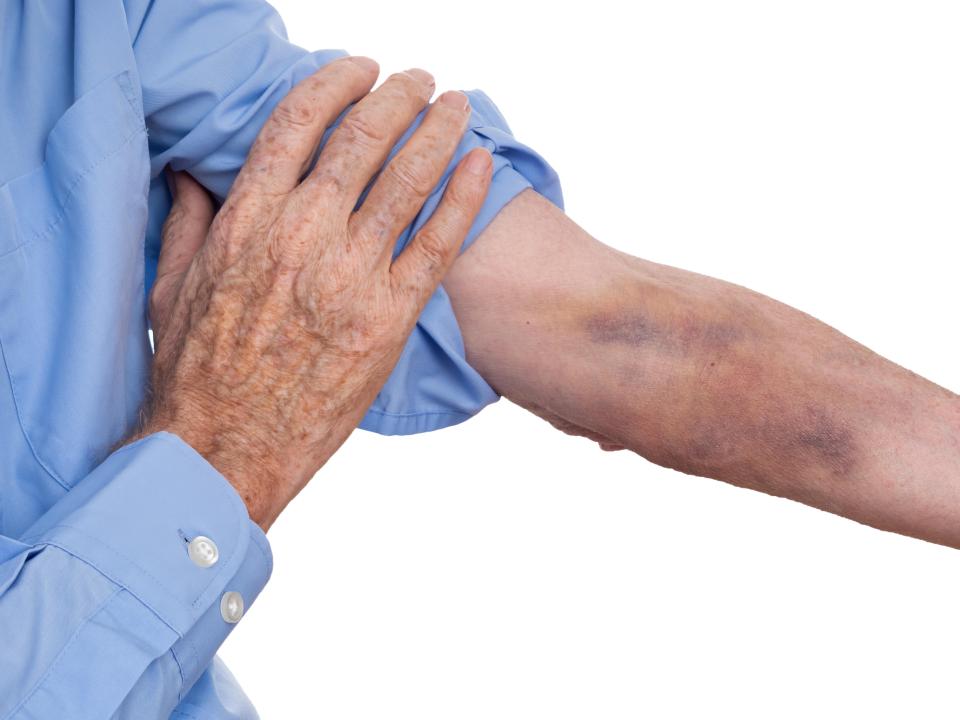IT’S a sobering thought that some cancers can advance quietly in the body until they have reached a late stage.
This is frequently what we see with liver cancer, which is often diagnosed too late.
Last week, researchers projected cases of this disease worldwide could double, to 1.52million by 2050.
But crucially, three in five cases could be prevented, the Lancet Commission on Liver Cancer said.
You can reduce your risk of the condition by cutting down on alcohol, quitting smoking and, if you are carrying excess body fat, getting support to lose weight healthily.
Some risk factors can’t be changed – being over the age of 60, being male or having a family history of the disease all increase your chances.
So it’s important to focus on what we can change.
While early symptoms can be rare, unexplained weight loss, persistent fatigue, discomfort or pain in the upper abdomen, and yellowing of the skin or eyes – jaundice – are all potential red flags.
Here’s a selection of what readers asked me this week . . .
FEARS OVER FAINTING
Q) CAN the NHS offer me any help with fainting?
Since I was a teenager I have had episodes in response to blood tests, smear tests or examinations and other random events involving my body.
Now I am worried about pregnancy and childbirth in the future, with all the procedures.
What happens if I spend the entire time fainting? No one will know what to do with me.
I’m sure this would be discussed with a team of doctors at the time, but is there anything I can do to prepare?
A) It sounds to me as though you are describing an issue that is rooted in your psychology but leads to a physiological response.
Therefore, the best approach may be psychological therapy, such as cognitive behavioural therapy.
“Vasovagal syncope” is the most common reason that people faint.
The classic stereotype is in the black-and-white movie where a woman sees a mouse and throws her hand to her forehead before fainting.
But in real life, we can have the same response triggered by things that are painful, overwhelm us emotionally or that we fear, such as needles or examinations/procedures.
So past experiences can make you more likely to experience this response.
These can overstimulate the vagus nerve, which regulates heart rate and blood pressure.
Heart rate and blood vessels widen, particularly in your legs, leading to a sudden decrease in blood pressure.
Then, less blood reaches your brain, resulting in a temporary reduction in oxygen supply, which causes you to faint.
It’s clever, really. Fainting causes our body to collapse, and that loss of gravity means more blood can get to the brain.
Some theories suggest fainting has evolutionary roots, possibly acting as a way to avoid immediate physical harm by making an individual appear more submissive.
My advice would be to self-refer to NHS talking therapies to see what type of help would be available to you – most likely cognitive behavioural therapy (CBT) initially.
Because some of your triggers involve medical procedures, gradual exposure therapy might help.
It’s a good idea to deal with this now, so when the time comes, you will have alleviated your fears.
But do bear in mind the NHS has perinatal mental health services too.
Why do I keep losing my balance?
Q) OVER the past few months, I notice that I lose my balance when walking.
I am a 75-year-old male and take a few medicines for blood pressure, diabetes and cholesterol, which I have sent you a list of.
Could any of these cause the balance issue?
A) Yes, it is possible your medication is causing dizziness, especially the blood pressure medications and Gliclazide.
It’s important to always keep an eye on blood pressure.
Sometimes, as people get older, especially if they lose weight, their blood pressure can start to get lower over time and sometimes BP medications need to be stopped.
Gliclazide is a diabetes medication which can cause low blood sugar (hypoglycemia) – a major cause of dizziness, faintness and balance loss.
You can become more sensitive to these side effects as you age, especially if you have missed meals or are eating less than before.
Another factor in your case is polypharmacy, defined as the regular use of five or more medications at the same time.
The combination of several drugs increases the risk of side effects and interactions.
I would advise you to ask your GP surgery for a review of all your medications – a GP or pharmacist can evaluate whether any can be reduced, swapped, or spaced out.
Also, get your blood pressure checked – including a lying/standing test to see how your blood pressure responds to you standing up – and a diabetes test if you haven’t had them done recently.
It’s worth asking about doing some blood glucose tests at home to check for low blood sugar episodes.
If your symptoms persist you may require a further balance assessment – your doctor might refer you to a falls clinic, physiotherapist, or neurologist if needed.
TIP OF THE WEEK
IT’S not just a nice treat, it’s good for your health to invest in a pair of proper shoes.
Sandals, flip-flops and bare feet are popular at this time of the year, but can have knock-on effects for your spine.
They could be the cause of back and hip pain, and the hard skin on your feet.
Opt for shoes with good support.
Q) I BELIEVE my skin has become very thin, as I bruise and bleed very easily.
I am an 83-year-old male. My current medication is nifedipine and levothyroxine, and has been for years.
Would taking collagen powder help my skin?
A) Skin thinning and easy bruising are quite common with age, especially after 80, and it can be influenced by a natural reduction in collagen and elastin in the skin.
However, it is important to always see your GP to be checked for other causes of bruising and easy bleeding before assuming it is just down to thin skin.
Your medications – nifedipine (a calcium channel blocker used for high blood pressure) and levothyroxine (thyroid hormone replacement) – are not typically known to thin the skin or cause easy bruising directly.
If you get the all-clear from your doctor regarding the bruising and bleeding then it might be worth trialling a collagen supplement.
There still isn’t what we would say robust evidence to support collagen supplements yet, but studies have shown collagen peptides can modestly improve skin thickness, elasticity, and hydration in older adults.
They have other health benefits too, such as supporting the health of joints and bones.
However, results vary and the improvements may be modest and take at least two to three months of daily use to show noticeable effects.
Not all collagen supplements are the same either. Look for hydrolysed collagen peptides or collagen hydrolysate – these are better absorbed.
A dose of 5-10 grams per day is commonly used in studies.
Vitamin C helps with collagen synthesis, so either choose a collagen supplement with added vitamin C or ensure you’re getting enough through your diet (citrus, berries, etc).
Make sure you have a healthy, varied diet too.
While collagen powder won’t reverse the ageing process, it may offer mild benefits to your skin’s strength and hydration, and could be worth trying, especially since it’s generally safe.
But do keep a note of whether it’s helping, and if not, it might be worth stopping so as not to waste money.
Cook to slim faster
HOME cooking could help you lose weight twice as fast as eating shop-bought meals, according to a study.
Research by University College London found that slimmers lost more weight even if the foods were matched for calories, fat and sugar.
For example, participants eating porridge and home-made spaghetti bolognese slimmed faster than those who ate shop-bought oat bars and pasta ready meals.
People on the balanced but processed diet lost 1.05 per cent of their body weight in two months, while those eating similar but non-processed versions lost 2.06 per cent in the same time.
The difference was equal to eating 170 fewer calories per day so could lead to more weight loss over a longer period.
The results suggest the way foods are processed makes them less healthy, even when they look like normal meals.
We rely heavily on ultra-processed foods, which mak up around two thirds of our daily diet.
They include most packaged foods such as crisps, chocolate, ready meals, biscuits and breakfast cereals.
Minimally processed foods are those that have to be made such as pasta, rice and milk. Unprocessed foods include fresh fruit and veg, meat, fish and eggs.
Senior study author Professor Rachel Batterham said: “The best advice to people would be to moderate overall energy intake and limit intake of salt, sugar and saturated fat, while prioritising high-fibre foods such as fruits, vegetables, pulses and nuts.”
Care after jabs is vital
FAT jabs are not a “quick fix” and patients must be followed-up for at least a year to keep the weight off, warns The National Institute for Health and Care Excellence.
With more than 1.5million Brits thought to be taking weight loss injections such as Wegovy and Mounjaro, most are on private prescriptions and many do not receive help with diet and exercise alongside it.
Studies suggest people start regaining weight within two months of stopping the jabs and often put it all back on within two years.
Professor Jonathan Benger, chief medical officer at Nice, said: “Successful weight management doesn’t end when medication stops or when someone completes a behavioural programme.
“The transition period after treatment is crucial. People need structured support to maintain the positive changes they’ve made. This new standard makes sure services provide that vital continuity of care.”
The standard issued to UK medical clinics tells them how to look after patients taking weight loss injections.
They must get action plans for staying healthy at home and at work, have regular check-ins and have community support available.
Dr Rebecca Payne, head of standards at Nice, said: “Weight management is a long-term journey, not a short-term fix.
“The evidence is clear that advice and support for maintaining weight after stopping medicines can help prevent weight regain.”
















